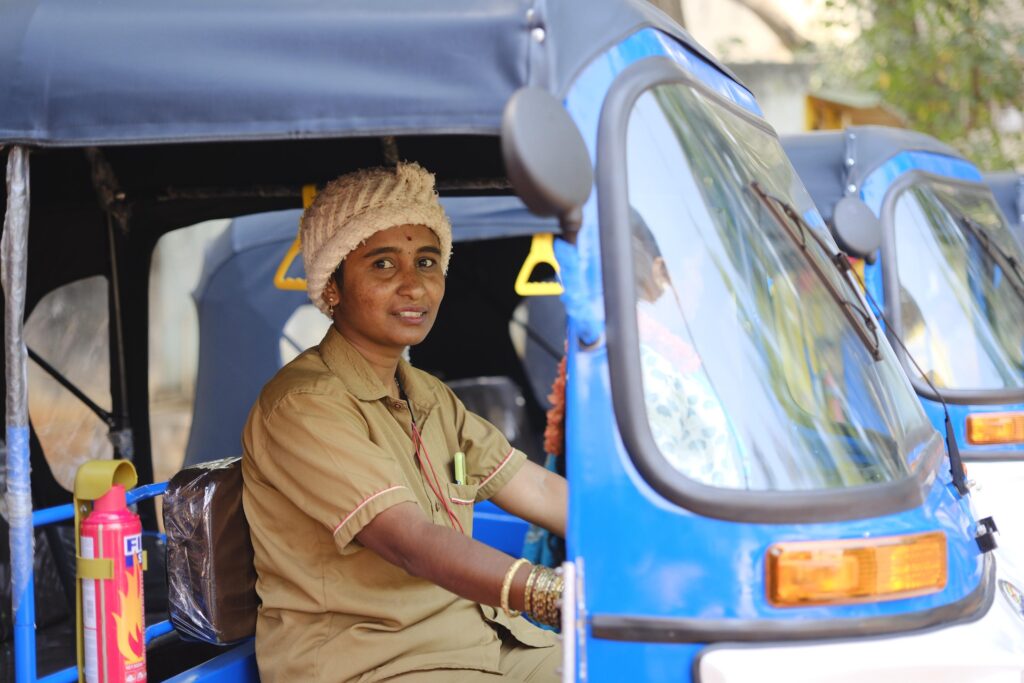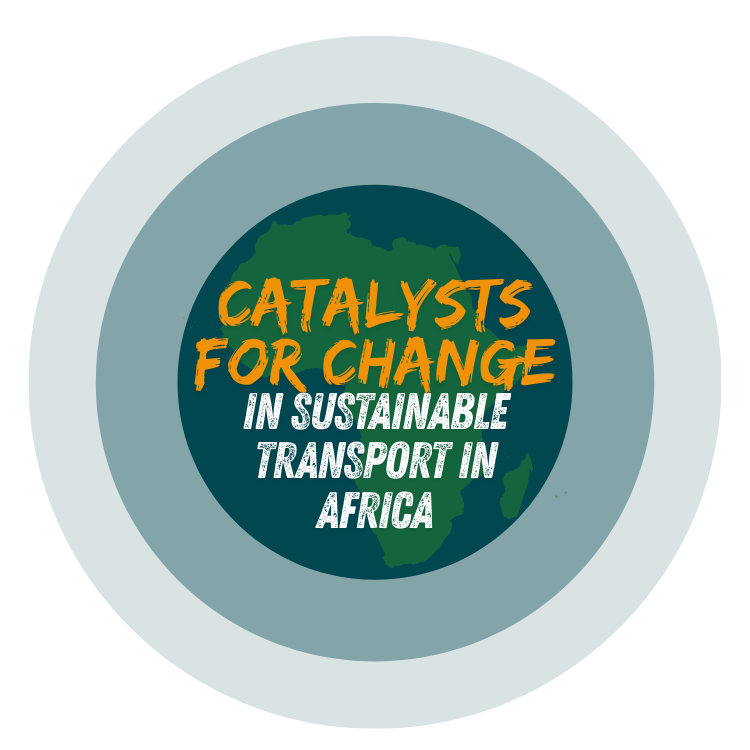
I never thought I’d be the one teaching others. Two years ago, I didn’t even know how to drive an autorickshaw.
Roopa
Roopa’s story is a powerful reminder that mobility is not just about getting from one place to another: it’s about progress, self-worth, and the ability to rewrite one’s own future.
Her transformation from a homemaker struggling to make ends meet to an independent driver and a mentor for other women grew out of an unexpected pivot in a pilot project launched by GIZ India under the Green Urban Mobility Innovation Living Lab (GUMILL).
Urban transport in India is in transition, with electrification and sustainable mobility rising on the policy agenda. Yet, gender gaps persist — both in terms of who benefits from transport services and who gets to operate within them. Public and shared transport modes are often unsafe, unreliable, or inconvenient for women, limiting their access to education, jobs, and services. At the same time, very few women are employed as drivers in public or para-transit services.
This exclusion is particularly acute among women from underprivileged communities. For many, informal work remains the only option, often accompanied by low wages, unsafe conditions, and little opportunity for upward mobility. Auto-rickshaws, despite being a vital part of India’s urban transport ecosystem, are rarely associated with women drivers, even though they could provide a practical and sustainable livelihood opportunity.
When the GUMILL team first designed the pilot, the aim was to test a Loop Service: a shared e-rickshaw system linking metro and bus stops with surrounding neighbourhoods in Malleswaram, Bengaluru. The service was especially intended to benefit women and the elderly. But regulatory hurdles around shared autorickshaw operations stalled the plan before it could begin.
Rather than abandon the vision, the team reimagined the project. Could the same goals — safe, affordable, and green local mobility — be achieved by directly empowering local women to drive? This became the turning point.
In 2024, four electric autorickshaws were purchased and handed to four women from disadvantaged backgrounds, chosen for their motivation, need, and strong ties to the community. With training and support from local NGOs and auto-rickshaw unions, these women began operating their own services, offering dependable last-mile mobility while building new livelihoods.
Today, each of the four women earns a steady income of INR 18,000–25,000 per month. They have improved their housing, gained access to clean water and sanitation, and are investing in their children’s education. More than income, the autos have become symbols of independence and respect.
The women are also inspiring others: some are training new drivers, others are helping neighbours enrol in driving schools. What started with hesitation in the community has turned into support, with women now seen as trusted service providers.
I never thought I’d be the one teaching others, but now I can show women that it’s possible.
Roopa
The impact goes beyond individual lives. The pilot has demonstrated that when women are given access and ownership, they not only support their families but also shift community perceptions and create pathways for others.

The project offers important lessons for inclusive mobility:
Policy-wise, the pilot shows how regulatory obstacles can be overcome through community-rooted solutions and ownership models. It provides a replicable model for integrating women into the clean mobility workforce — one that other Indian cities could adopt at scale.
What began as a planned Loop Service has grown into a women-led mobility model that is both environmentally and socially sustainable. The autos may be electric, but their impact is deeply human: dignity, independence, and new opportunities for women and their communities.
This story is not just about individual resilience, it’s about how access, trust, and a small investment can shift trajectories, not just for one woman, but for entire neighbourhoods.
Their journeys offer hope, but also an urgent call: if four lives can be transformed with four vehicles and a little support, imagine what could happen at scale.
The Green Urban Mobility Innovation Living Lab (GUMILL) was implemented under the Green Urban Mobility Partnership (GUMP) between India’s Ministry of Housing and Urban Affairs (MoHUA) and Germany’s Federal Ministry for Economic Cooperation and Development (BMZ). It was supported by develoPPP, with Bosch as the private sector partner.
If you believe that you suffer (potential) negative social and/or environmental consequences from IKI projects, or wish to report the improper use of funds, to voice complaints and seek redress, you can do so using the IKI Independent Complaint Mechanism.
